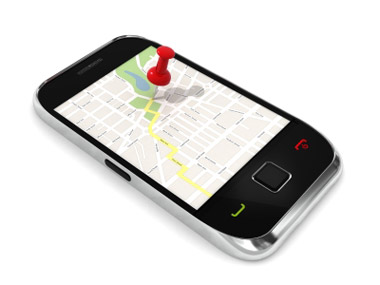The rapid adoption of smartphones and tablets is reshaping the home search process, as consumers are tending to use easier and faster ways to access real estate information and browse online listings. Many companies have already jumped on the mobile bandwagon and optimized their websites for hand-held devices. However, websites and their mobile versions, blogs, and social networking accounts aren’t enough today for real estate professionals to attract tech-savvy buyers, sellers, and renters.
Mobile apps are a greater way to build rapport with clients instantaneously. With the increasing number of mobile devices, more and more real estate brokers add mobile applications to their marketing toolbox in order to reach a greater quantity of home-buyers and improve conversion rate.
According to a new Mobile Home Shoppers study from The Real Estate Book (RealEstateBook.com), the activities conducted most often from a mobile device are:
- 30 % share listing information with friends and family;
- 42 % download a home buying search app;
- 55 % search by the city;
- 57 % locate a house listing with GPS;
- 60 % find listing details, price, description, amenities, and contact information;
- 66 % inquire for more information about a listing;
- 78 % view photos and videos of homes.
These figures confirm the growing reliance on mobile devices by home shoppers. The vast majority of home-buyers that download real estate mobile applications and access real estate content find apps very useful. In fact, mobile applications provide a quick and convenient way to search and filter through thousands of properties in neighborhood areas or countrywide.
An app from the real estate company may have the following features:
- Property search by city, state, or ZIP-code;
- GPS-enabled search;
- Advanced search with additional search filters, such as proximity, price range, number of bedrooms and baths, garages, pools and spas, other interior and exterior features;
- Search results displaying in map or list views;
- QR codes scanner to get instant information about the property of interest;
- Frequent MLS (multiple listing system) information updates;
- Google mapping with Street View;
- Details of the real estate (photos, price, square footage, room dimensions, contact person details, etc.);
- Recent search history;
- Driving Instructions;
- Neighborhood information (schools, stores, etc.);
- Advice and testimonials;
- Price comparisons.
Interactive mobile apps, being an essential supplement to print and web offerings, help real estate brokerages highlight their own listings, promote connectivity with clients, track search results, and collect statistics. A well-developed and reliable application can thus turn into a moneymaker and bring more clients and revenues in your pocket.
Industries and Technology Areas:
Industries: real estate
Technology Areas: mobile application development, software development, smartphone, Android, iPhone, iOS, tablet, GPS, QR code, MLS, multiple listing system, multiple listing service











